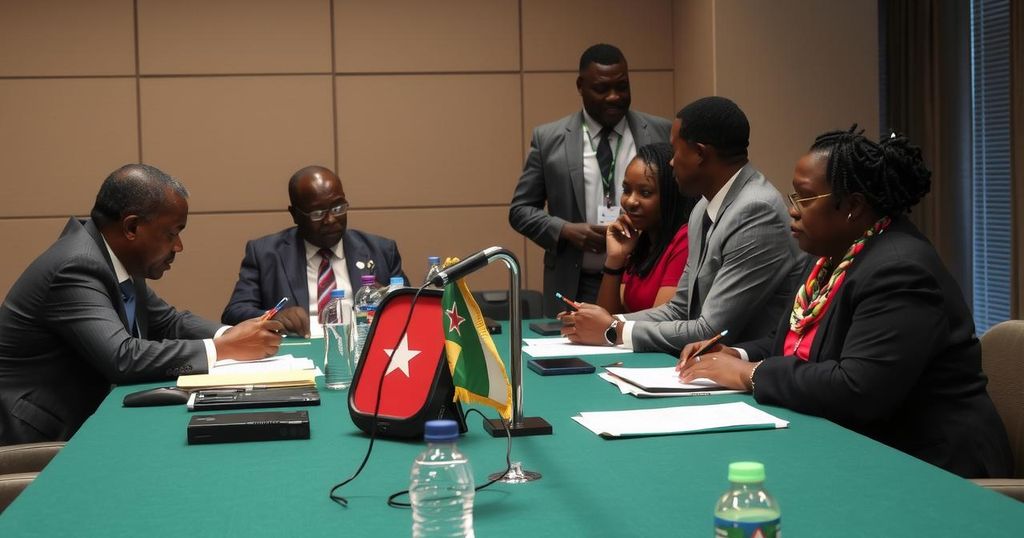A delegation from the UN Commission on Human Rights in South Sudan is visiting Kenya to engage stakeholders on human rights issues and accountability. Led by Yasmin Sooka, the discussions will emphasize support for a strong judicial system and the integration of transitional justice in peace negotiations. The Commission aims to strengthen South Sudan’s transition amidst ongoing conflicts.
A delegation from the UN Commission on Human Rights in South Sudan has initiated a five-day visit to Kenya, aiming to engage with various stakeholders to advance human rights and ensure accountability for violations occurring in South Sudan. The delegation is headed by Chair Yasmin Sooka and member Barney Afako, with planned meetings involving senior Kenyan officials, international organizations, and civil society groups.
The discussions will emphasize the critical importance of upholding human rights and preventing any further deterioration of the situation in South Sudan. The Commission seeks to highlight regional support’s role in South Sudan’s transition, particularly from Kenya, which serves as a guarantor of the peace and transition process. Additionally, the Commission will advocate for robust backing of South Sudan’s endeavors to establish a reliable and independent judicial system, as per the Judicial Review Commission’s recommendations.
The delegation will also engage with stakeholders involved in the Tumaini Initiative, a resumed mediation dialogue between the South Sudanese government and hold-out groups, which pertains to the Revitalized Agreement for Resolution of Conflict in South Sudan (R-ARCSS) from 2018. The Commission aims to encourage the incorporation of transitional justice measures into the negotiations, ensuring accountability and redress for victims, deemed essential for fostering lasting peace in the region.
Established in March 2016 by the UN Human Rights Council, the Commission on Human Rights in South Sudan is an independent entity responsible for investigating human rights conditions in the country. Composed of three commissioners who work independently and receive no remuneration, they investigate violations and recommend actions to prevent further deterioration. The Commission’s findings are based on independent interviews with victims, witnesses, and relevant stakeholders.
The United Nations Commission on Human Rights in South Sudan was established in 2016 to monitor and report on human rights conditions in South Sudan. Given the ongoing conflict and numerous reports of human rights abuses, the Commission plays a pivotal role in advocating for accountability and promoting justice in the region. Their current visit to Kenya is significant as it builds partnerships to support South Sudan’s transition and peace processes, which have faced numerous challenges.
The visit of the UN Commission on Human Rights in South Sudan to Kenya underscores the urgent need for dialogues focusing on human rights and accountability within the framework of the Tumaini Initiative. By facilitating discussions with various stakeholders, the Commission is reinforcing the necessity of transitional justice measures as fundamental components of peace negotiations. This multifaceted approach aims to address past violations and foster a more stable future for South Sudan.
Original Source: www.radiotamazuj.org






